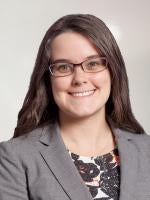In a landmark decision, the Supreme Court unanimously overturned the Federal Circuit’s VE Holding opinion, which had permitted patent defendants to be sued in any forum in which they were subject to personal jurisdiction. Now, patent cases can be brought in only one of two places: (1) the defendant’s state of incorporation; or (2) a district where infringing activity has occurred, and the defendant has a regular and established place of business.
The dispute in this case hinged on construction of the patent-specific venue statute, which was first enacted over 100 years ago and has never been substantively amended since. Congress enacted this statute with the aim of clarifying where patent suits could be brought; the statute made defendants amenable to suit either (1) where the defendant is an “inhabitant,” which at the time meant where it was incorporated, or (2) where the defendant had both committed acts of infringement and maintained a regular and established place of business.
In 1948, Congress codified the patent venue statute as 28 U.S.C. § 1400(b) and modernized the act’s language, changing the term “inhabits” to “resides.” Also in 1948, Congress added a general venue statute, § 1391, which included a broad definition of “residence” for corporations. This raised the question of whether the definition of “residence” in § 1391 should be read into § 1400(b) – and because § 1391’s definition of residence was much broader than § 1400(b)’s, doing so would significantly broaden the scope of where patent cases could be brought. The Supreme Court squarely addressed this question in Fourco Glass Co. v. Transmirra Prods. Corp., 353 U.S. 222 (1957), and declared that the patent specific venue statute was “the sole and exclusive provision controlling venue in patent infringement actions.” Section 1391’s broad definition of residence, then, was not applicable to § 1400(b).
Congress made several amendments to the general venue statute in 1988, including amending § 1391(c) to state that it should apply for “all venue purposes.” The Federal Circuit addressed these amendments in VE Holding Corp. v. Johnson Gas Appliance Co., 917 F.2d 1574 (Fed. Cir. 1990), and held that as amended, § 1391 applied to the patent venue statute. By reading the more permissive standard of corporate “residence” set forth in § 1391 into § 1400(b), VE Holding greatly broadened the districts in which patent defendants would be subject to suit: now, patent cases could be brought in any court having personal jurisdiction over the defendants. Over time, patent cases have become concentrated in a small number of purportedly patent-friendly districts, including the U.S. District Court for the Eastern District of Texas, and many defendants have objected to this outcome.
In 2011, Congress amended the general venue statute again, this time specifying that the general venue provisions applied “except as otherwise provided by law.” These amendments once again raised the question of whether the general venue statute could be read into § 1400(b), and gave rise to this case. Here, Kraft sued TC Heartland, a manufacturer of liquid water enhancers, in the District of Delaware; although TC Heartland had no direct connections to the state, it had shipped some of its products there at a customer’s request. TC Heartland moved to dismiss, arguing that the 2011 Amendments to the general venue statute nullified VE Holding, and that venue was not proper in Delaware under § 1400(b). When TC Heartland’s motion was denied, it sought a writ of mandamus from the Federal Circuit, which was also denied, and TC Heartland filed a petition for certiorari.
The case attracted significant interest while it was pending before the court, with nearly 40 amicus briefs filed during the cert and merits stages, arguing a plethora of policy issues. At oral argument, however, the Justices trained their attention on the statutory interpretation issues. Questions at oral argument focused in particular on whether Congress had ever intended to overrule Fourco, and what law Congress intended to codify with the “except as otherwise provided by law” language in the 2011 amendments to § 1391.
This attention to statutory construction is reflected in the opinion, which is almost entirely focused on § 1400(b) and the Court’s earlier decision in Fourco. Writing for a unanimous court, Justice Thomas noted that neither the Court nor Congress had ever overruled Fourco, and as such, Fourco’s holding that the patent venue statue was “alone controlling in its sphere” remained good law. As a result, § 1391’s definition of “residence” could not be read into § 1400(b).
The opinion is of great significant to all patent litigants, as it greatly restricts the available fora in which a defendant may be sued. Moreover, the opinion does not address several other important questions raised at argument, including where foreign defendants and unincorporated associations, such as LLCs, can be sued under the patent-specific venue statute. Plaintiffs and defendants alike should continue to pay close attention to future developments on this very important issue.
The case is TC Heartland LLC v. Kraft Foods Group Brands LLC, No. 16-341, and the opinion was written by Justice Clarence Thomas. A copy of the opinion can be found here.



 />i
/>i

